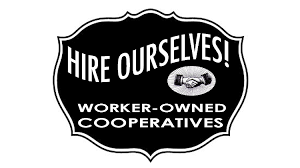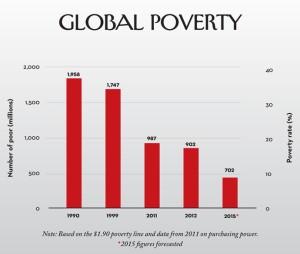
Denounce “capitalism” or the market economy all you want – but what’s your alternative? This system was not foisted on us. Rather, it’s the natural paradigm for human economic relationships; everything else is an attempt to impose some artificial one. Stone age people had a market economy – trading flints for pelts, for instance, at an exchange rate they’d negotiate.

The invention of money made things a whole lot easier. Yet some people demonize money (“the root of all evil”) and the whole concept of selling anything for money (not to mention that bugbear, “profit”). They fantasize instead a “sharing economy” – you share your flints with me, and I share my pelts with you.
Indeed, such sharing too is fundamental to human nature. We share a lot, especially among friends and family. Among strangers, not so much – we are altruistic, but only up to a point. That greatly limits the scope for a “sharing economy.” You may persuade your pal to share some flints, but will have a tough time cajoling GM to share its cars. In fact, how would cars get made at all in a “sharing economy?”

The great beauty of a money/market economy is that all the contributions of the many disparate people needed to produce a car get rationally and efficiently organized, via everyone in the picture being compensated for what they provide, out of the money you pay for the car. Otherwise – no cars. Nor pretty much anything else you buy.
So a “sharing economy” would be fine, as long as you’re happy living in a cave sharing flints and pelts.
Of course, the real-world alternative to a capitalist, market economy has been socialism, where the government does everything. And I say “has been” because few apart from Bernie Sanders still think this is a good idea. Turns out that absent a profit motive, with the associated impetus to satisfy customers, you get East Germany’s Trabant car rather than West Germany’s BMW. And also a government too powerful for its own good (or yours). “Democratic socialism” has proven an oxymoron; whatever you can say about Cuba, or Venezuela, “democratic” ain’t one of them (unless you torture the word’s meaning, as socialists will do).

However, there’s another conceivable alternative – worker cooperatives – businesses owned by their employees, bridging the divide between capital and labor. Nothing incompatible here with market economics or even capitalism. And the profits go to those who produced them, nowhere else. What’s not to love?
Actually, we’ve gone partway toward that model, with many employees owning stock in their companies, especially in 401k plans; and pension funds have huge shareholdings. Yet we’ve seen very few firms owned outright by their workers.
You might wonder why workers in a plant being closed don’t just organize to buy and run it themselves, so they can keep their jobs. Well, plants get closed for economic reasons. Workers won’t ship their own jobs overseas, but wishing won’t make them and their products competitive in the global market. Workers investing their own hard-earned money in a struggling business is not a great idea.
But what about a thriving one? Employees pooling funds to take over, say, Delta Airlines, might be theoretically conceivable, but the sum required would be daunting. And even a seemingly healthy firm might not be a sound long-term investment. The world changes. Too many people have put their nest-eggs in their own employers’ stock that plummets. Enron was a prime example. Not to mention the managerial problems, with big conflicts of interest, that employee ownership would entail.

Guess we’re pretty much stuck with plain old capitalism. Boo hoo; but it’s raised global average real dollar incomes five-fold in the last century, lifting billions out of poverty. Maybe not such a bad system when you really think about it.
Meantime, a kind of “sharing economy” is emerging in the form of enterprises like Uber and Airbnb – people sharing their cars and homes. Of course they don’t do it altruistically, but for money. Thus this actually highlights the true virtue of free market economics – people finding ways to create value for other people, and thereby benefiting themselves. What’s not to love?
